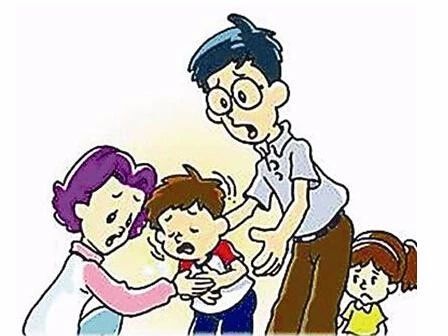In winter, there is a high incidence of pneumonia, elderly children, pregnant women, etc. have been shot. Yesterday was a good person. He could be defeated by bacteria and viruses overnight and contract pneumonia, crying every day, crying to the ground, having trouble breathing, having headaches, and hanging bottles every day. More serious and even more terrible consequences ...

Why is pneumonia the "number one killer" that harms children's health? The "disaster star" of elderly health?
Pneumonia is a serious infectious disease that occurs around the world, especially for children. According to the statistics of the World Health Organization, about 700,000-1 million children under the age of 5 die from pneumococcal diseases every year, and every 15 seconds in the world will take one child's life due to pneumonia. Pneumonia is known as the "number one killer" against children's health.

Pediatric pneumonia is also a serious disease that threatens the health of children in China, both in morbidity and mortality are higher than in developed countries. Respiratory tract infections in pediatric clinics in China account for 60% -80% of the total number of patients, and about 300,000 infants and young children die of pneumonia every year. It is one of the "four major diseases" formulated by the Ministry of Health and requiring key prevention and treatment among children.
Old people over 70 years old, or patients with underlying diseases such as chronic obstructive pulmonary disease, diabetes, and malignant tumors are also high-risk groups of pneumonia.
Pregnant women are also susceptible to pneumonia. Pneumonia is a common disease of non-obstetric infections in pregnant women and one of the main causes of non-obstetric deaths. Pneumonia during pregnancy tends to develop into bacteremia or sepsis, with multiple organ failures such as shock, disseminated intravascular coagulation, adult respiratory distress syndrome, heart failure, renal failure, etc., which can lead to death.
How does pneumonia spread?
Pneumonia can be spread in many ways. Some bacteria and viruses can be carried in the nasal cavity or throat of children. Generally, they are not pathogenic. In case of low immunity, they can cause the disease. Bacteria and viruses can also spread in the air by coughing or sneezing. Why are children, the elderly, and pregnant women susceptible to pneumonia? Under what circumstances should be alert to pneumonia?
Children are vulnerable to various microbial invasions due to incomplete development of the body's immune system and weak resistance, especially children from 6 months to 2 years. Children with colds may also cause pneumonia if they are not treated in a timely manner.
The elderly are also vulnerable to bacterial viruses because of poor body resistance or basic diseases.
Pregnant women have a certain degree of immunity due to their physiological characteristics, so the chance of pneumonia during pregnancy is also large. Pregnant women and lactating women cannot be vaccinated against pneumonia, which makes prevention particularly important.
 肺炎
肺炎
How to prevent pneumonia? Anti?
Inoculation of pneumococcal vaccine is an effective measure to prevent pneumonia caused by pneumococcal infection, and has important health economic significance.
lung
What are the pneumonia vaccines?
At present, there are two main types of vaccines commonly used to prevent pneumococcal diseases, polysaccharide vaccines (23-valent polysaccharide vaccines, suitable for people over 2 years old) and combination vaccines (13-valent, can be used for infants and children under 2 years old).

Key targets for pneumonia vaccine:
1. Selective inoculation

①50 years old and over.
②Chronic diseases, such as cardiovascular and pulmonary diseases, and impaired liver and kidney functions.
③ Patients with immunodeficiency, such as splenectomy or splenic dysfunction.
④People with other chronic diseases such as alcohol abuse, diabetes, chronic cerebrospinal fluid leakage, immunosuppression, etc. can cause more severe pneumococcal disease patients, or recurrent upper respiratory tract diseases, including otitis media, paranasal sinusitis, etc. .
⑤ Patients with Hodgkin's disease.
2. Mass vaccination
① Group contacts are close, such as boarding schools, nursing homes and other similar places.
②People with a high risk of influenza complications, especially pneumonia.
③When an outbreak of pneumococcus occurs, the community population is a high-risk group.
Note: Who bans pneumonia vaccine?
Those who are allergic to any component in the vaccine;
Patients undergoing immunosuppressive therapy;
Patients with severe heart disease or lung dysfunction;
Women during pregnancy and lactation.
Why is "combination inoculation" effective?
Unity is strength, as is joint vaccination with flu vaccine and 23-valent pneumonia vaccine. Since flu often induces pneumonia, combined vaccination of flu and pneumonia vaccines can achieve twice the result with half the effort and reduce the hospitalization rate for chronic lung diseases by 63% and the overall mortality rate by 81%!


 肺炎
肺炎




